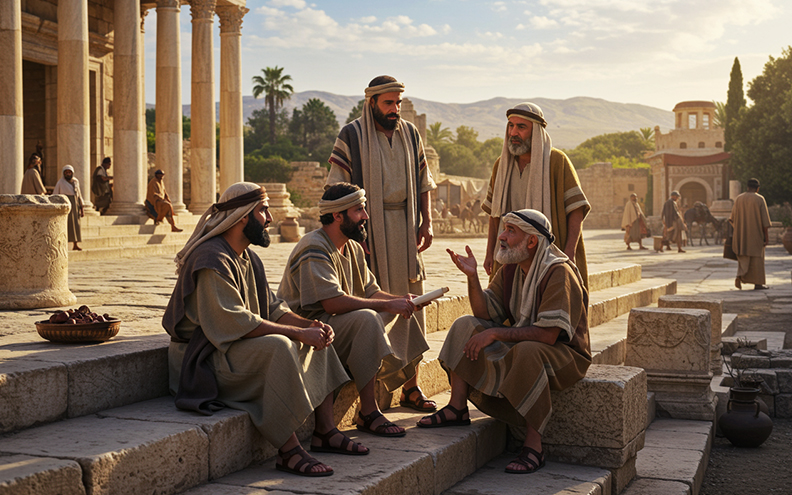The Origin of the Name “Christians”

The term “Christians” was first used in Antioch of Syria. The book of Acts records this historic moment: “And when he found him, he brought him to Antioch. So it was that for a whole year they assembled with the church and taught a great many people. And the disciples were first called Christians in Antioch” (Acts 11:26).
Antioch was a major commercial hub of the Roman Empire, home to a diverse population of Jews, Greeks, and Romans. It was in this cosmopolitan city that the community of Christ’s followers first emerged as a distinct religious movement, separate from Judaism.
The formation of the Antiochian church began in the aftermath of the persecution that followed Stephen’s martyrdom. Scattered believers reached Antioch, where men from Cyprus and Cyrene began preaching not only to Jews but also to Gentiles. The result was remarkable: “a great number believed and turned to the Lord.”
The Jerusalem church sent Barnabas to oversee this new community. Barnabas brought Saul (later the Apostle Paul) from Tarsus, and together they spent an entire year instructing the new converts—a mixed congregation of both Jews and former pagans.
Linguistically, the word “Christians” is a Greco-Latin formation denoting belonging to Christ. Such terms were commonly used to identify followers of political leaders or philosophical schools. The name was likely coined by the residents of Antioch or local authorities who needed a way to identify this new religious group, and was subsequently adopted by the believers themselves.
The term “Christian” appears only three times in the New Testament. King Agrippa II told the Apostle Paul: “You almost persuade me to become a Christian” (Acts 26:28). The Apostle Peter wrote: “Yet if anyone suffers as a Christian, let him not be ashamed, but let him glorify God in this matter” (1 Peter 4:16). These references demonstrate that by the apostolic era, the designation had gained widespread recognition.
The Antiochian church became the launching point for Christian missions to the Gentiles. According to Acts 13:1-3, it was from here that the Holy Spirit commissioned Barnabas and Saul for their first missionary journey. The church was characterized by vibrant spiritual life—fasting, prayer, teaching, and evangelism—uniting people from vastly different cultural backgrounds.
Thus, Antioch of Syria played a pivotal role in early Christian history, becoming the place where Christ’s followers received the name that has endured for nearly two millennia.
